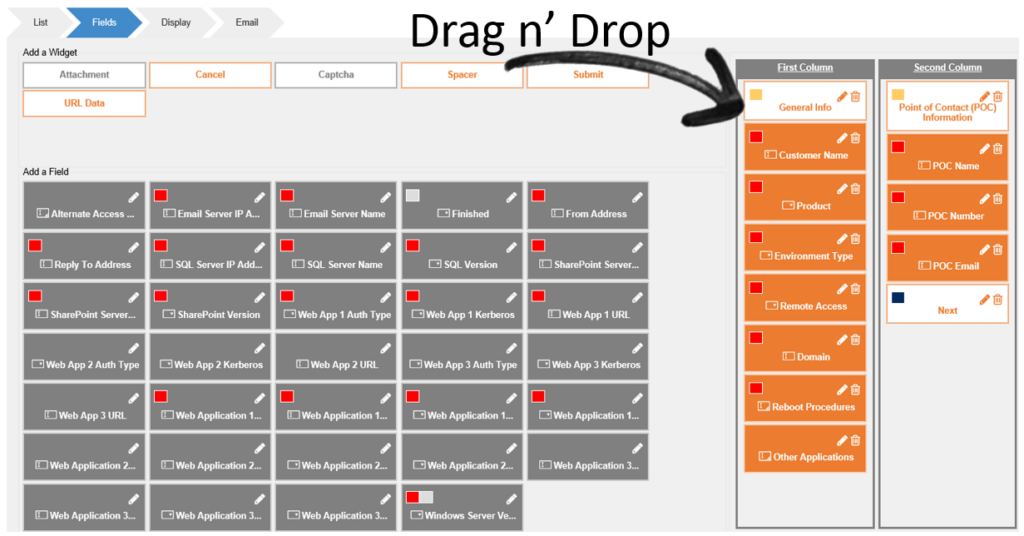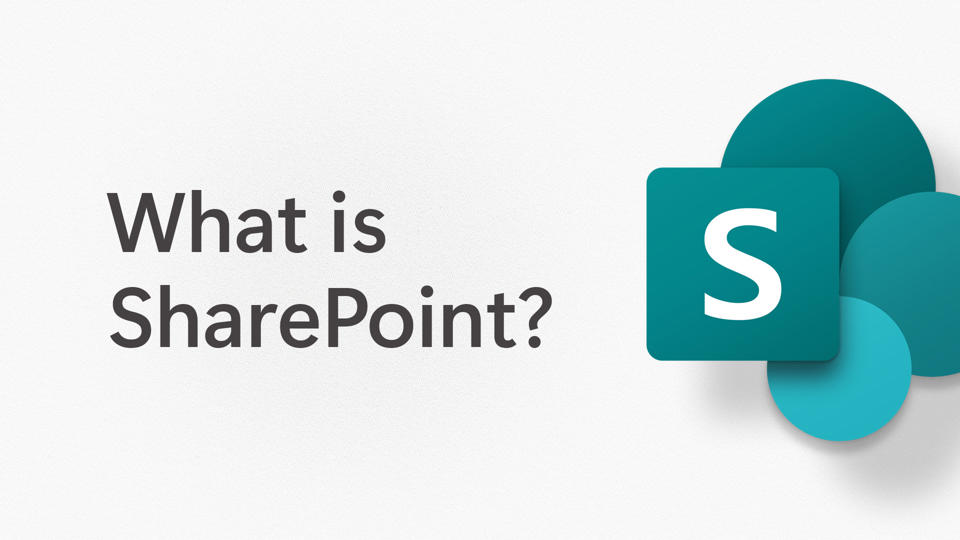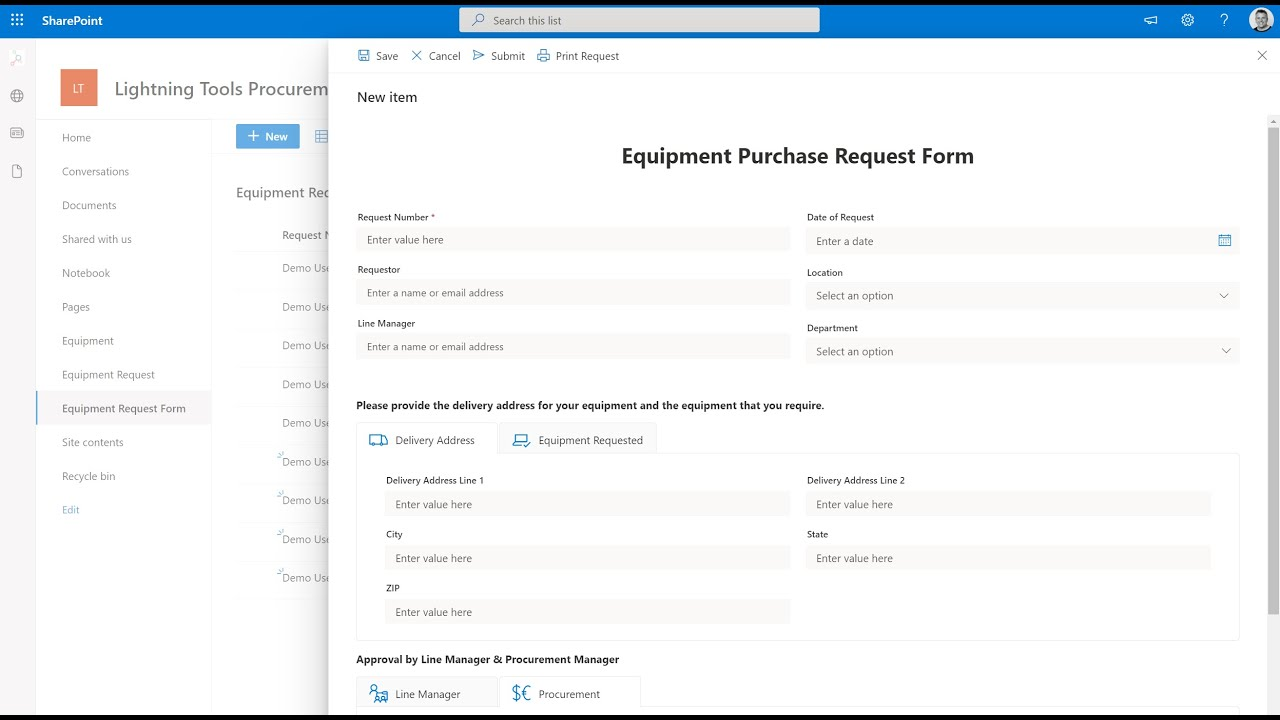In today’s dynamic business landscape, the shortcomings of paper-based processes have become glaringly apparent. According to recent industry studies, approximately 64% of businesses still grapple with the challenges of manual processes, ranging from the frustration of misplaced documents to the costly consequences of errors and the environmental toll of excessive paper usage.
These traditional methods are increasingly hindering rather than facilitating efficiency, necessitating a shift towards more agile and digital workflows. In this era of rapid digital transformation, the need to overhaul workflows has become a pressing imperative for organizations striving to stay competitive.

Amid this backdrop, SharePoint Online Microsoft Forms emerges as a standout solution, poised to revolutionize how organizations handle information. Developed as a cloud-based tool, SharePoint has evolved into a comprehensive collaboration and productivity platform, with SharePoint Online Forms being a user-friendly application within this ecosystem.
As an integral component of the broader SharePoint platform, SharePoint Forms are designed to address the challenges inherent in paper-based processes and introduce a shift in information management. The tool leverages the latest technology to simplify and enhance how organizations manage and process information, thus empowering modern-day businesses to transition seamlessly from paper-based to digital processes, mitigating the risks of lost documents and errors while contributing to a more sustainable and environmentally friendly operation.
In that regard, statistics reveal the recent widespread adoption of SharePoint in business environments, with over 200,000 organizations and 190 million people actively using SharePoint forms for various collaborative and information management needs. This widespread usage underscores the platform’s reliability and effectiveness in transforming traditional workflows and creating forms.
This article focuses on how you can make the most out of SharePoint forms to enjoy a more efficient, accurate, and eco-conscious future in information management, exemplifying the power of technology to drive positive change in the business landscape. So, without further ado, here’s how to streamline your business processes and operations with SharePoint Online Forms and take your organization to the next level.
SharePoint Online Forms
SharePoint Online Forms is a user-friendly, cloud-based solution revolutionizing the creation and management of digital forms. Developed by Microsoft and launched in 2001, this application is a critical component of the broader SharePoint platform, renowned for its versatility in addressing organizational needs.
At its core, SharePoint Forms simplifies form-building through a user-friendly interface, enabling effortless drag-and-drop custom form creation. This intuitive feature empowers users, regardless of technical expertise, to design and customize SharePoint Forms tailored to their specific requirements.

Beyond its ease of use, SharePoint Forms incorporates advanced functionalities to enhance form efficiency. Conditional logic allows for dynamic form in SharePoint behavior, adjusting form settings based on user inputs. This ensures a personalized and responsive experience, optimizing user interactions with the forms.
Data validation is another critical feature, minimizing errors by imposing rules and criteria on every customized form submission. This guarantees the accuracy and reliability of the information collected from customized forms, contributing to the overall integrity of organizational data.
Moreover, SharePoint Forms seamlessly integrates with other Microsoft 365 applications, fostering a cohesive digital ecosystem. This integration extends the platform’s capabilities, allowing users to harness the power of collaboration, communication, and data management across various Microsoft 365 tools.
In essence, SharePoint Online Forms is more than just a form creation tool; it’s a comprehensive solution that combines user-friendly design, advanced functionalities, and seamless integration, marking a significant leap forward in the realm of digital information management.

Now that you have a better understanding of what SharePoint Forms is and its biggest traits, let’s discuss the unmatched power of streamlined processes in business environments and, later, how to create forms in SharePoint according to your needs and wants.
The Power of Streamlined Processes
Delving deeper into the benefits of SharePoint Online Forms unveils a transformative impact on workflows and their automation, ushering in a new era of efficiency, accuracy, and sustainability.
Increased Efficiency
To begin with, one of the most significant advantages that comes with adopting SharePoint Online Forms is the increased efficiency among team members. In other words, the implementation of SharePoint Online Forms means that manual data entry, a time-consuming and error-prone process, becomes a relic of the past. Approvals are expedited, and the automation of routing processes ensures a swift and seamless movement through the workflow. This accelerates the pace of operations and minimizes delays associated with traditional paper-based approval systems.

Improved Accuracy
The commitment to accuracy is paramount in information management, and SharePoint Online Forms addresses this concern head-on. Data validation rules and conditional logic work in tandem to minimize errors, guaranteeing that the information collected is swift but also accurate and reliable. This precision is essential for decision-makers who rely on the data collected through these forms for informed decision-making.
Enhanced Visibility and Tracking
Furthermore, SharePoint Forms introduce enhanced visibility and tracking capabilities. Real-time data insights and analytics provide a comprehensive overview of submitted forms, allowing stakeholders to monitor and understand the status of ongoing processes. This transparency streamlines decision-making and fosters a proactive approach to managing workflows.
Reduced Costs
In addition to operational improvements, adopting SharePoint Forms translates into reduced costs. The digital transition not only saves time but also mitigates expenses related to paper, printing, and postage. Organizations can reap the benefits of a leaner and more cost-effective operation, redirecting resources to strategic initiatives rather than routine administrative tasks.
Sustainable Practices
Beyond economic advantages, embracing digital forms aligns with sustainable practices. The reduction in paper usage associated with SharePoint Online Forms contributes to a greener and more environmentally friendly approach to information management. As organizations seek ways to reduce their carbon footprint, this shift towards sustainable practices becomes a tangible and impactful step in the right direction.
Getting Started with SharePoint Online Forms
Getting started with SharePoint Forms is a straightforward process that allows users to seamlessly transition from traditional paper-based forms to dynamic and efficient digital solutions. Here’s a step-by-step guide on how to first create a form or forms in SharePoint and deploy one:
- Access SharePoint Online. Begin by navigating to your SharePoint Online site. If you don’t have one, create a SharePoint site in Microsoft 365.
- Navigate to SharePoint Lists. Locate and select the “Lists” option in your SharePoint site. This is where you’ll create your digital form web address.
- Create a New List. Click on “New” and select “List” to initiate the creation of a new list, which will serve as the foundation for your form.
- Choose Custom List. Opt for a “Custom List,” as it allows for more flexibility in defining the data fields for your form.
- Configure List Settings. Set up the list settings by defining the columns that represent the different data fields you want in your form. This customization ensures that the form collects the specific information you need.
- Access Microsoft PowerApps. Click on “PowerApps” in the SharePoint list menu to launch Microsoft PowerApps, a tool integrated with SharePoint for form creation.
- Create Your Form. Utilize the intuitive drag-and-drop interface within PowerApps to design your digital form. Add data input fields, text boxes, and any other necessary elements based on your list settings.
- Implement Conditional Logic. Enhance the functionality of your form by implementing conditional logic. This allows for dynamic form behavior based on user inputs.
- Set Data Validation Rules. Ensure the accuracy of data by setting up validation rules for each data field. This step minimizes errors in form submissions.
- Preview and Test. Before deploying your form, preview and test it to ensure all elements function as intended.
- Deploy the Form. Once satisfied with the form’s design and functionality, deploy it for immediate use. Users can now access and fill out the digital form directly from the SharePoint site.

By following these steps, you can seamlessly create forms and deploy digital SharePoint Forms using SharePoint Online, harnessing the power of technology to streamline processes. For further inspiration and SharePoint Forms examples, explore Microsoft’s extensive documentation and community forums, or even better, you can get in touch with our in-house SharePoint experts who can provide valuable insights into best practices and innovative approaches to form creation within the SharePoint environment.
Beyond the SharePoint Forms
Beyond serving as a formidable digital SharePoint form creation and management tool, SharePoint Online unveils a vast array of capabilities extending far “beyond the Forms.” This platform, developed by Microsoft, is a comprehensive solution that transcends traditional document management systems.
- Workflow Automation. SharePoint Online empowers organizations to automate intricate workflows, streamlining repetitive processes and boosting productivity. By defining and automating tasks, approvals, and notifications, teams can focus on strategic initiatives while ensuring that routine operations proceed seamlessly.
- Content Management. The platform offers robust content management features, allowing users to organize, store, and access documents efficiently. Version control, metadata tagging, and customizable document libraries contribute to a sophisticated content management system that adapts to diverse organizational needs.
- Collaboration Tools. SharePoint Online is a collaborative hub fostering teamwork and communication. Features like real-time co-authoring, shared calendars, and discussion boards create an environment conducive to effective collaboration, whether teams work remotely or in the same physical space.
This multifaceted approach positions SharePoint Online as more than just a form-centric solution. Rather, it emerges as a versatile platform that empowers organizations to optimize workflows, manage content effectively, and enhance collaboration across the spectrum of business operations.
In Conclusion
In conclusion, the journey from traditional paper-based processes to the digital realm, guided by SharePoint Online Forms, reveals a transformative shift in businesses’ operations, a shift that your business truly needs to thrive and grow in the contemporary business landscape.
To fully leverage the potential of SharePoint Forms and the broader capabilities of Microsoft Power Apps and Microsoft 365, you can always turn to our professionals at ESW, as we can offer you tailored solutions for efficient implementation, customization, and optimization of SharePoint Online Forms.
Do not hesitate to request a consultation and learn how having ESW as a strategic partner means businesses can help your company confidently navigate the digital landscape, unlocking the full potential of SharePoint Online Forms and Microsoft technologies to drive transformative and sustainable success.